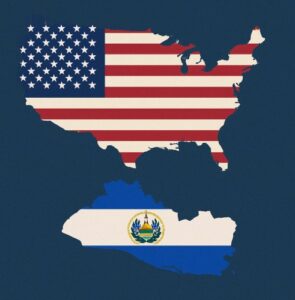The case of Kilmar Garcia, a 32-year-old El Salvadoran who entered the U.S. illegally in 2011 at age 19, has ignited passionate debate across political lines. Accused of serious crimes and extradited back to El Salvador, his fate is now tied to a justice system under President Nayib Bukele — a leader both praised and criticized for his sweeping crackdown on crime.
For those on the left, Garcia’s story raises troubling questions. Shouldn’t he be given a fair trial in the United States — the country where he spent his adult life, where he allegedly committed crimes, and where the legal system prides itself on due process and individual rights? They argue that Garcia’s return to El Salvador places him in the hands of a government known for mass trials and harsh prison conditions, particularly under Bukele’s aggressive anti-gang campaign.
However, those on the right often take a different view. They see Bukele as a strong leader cleaning up a country once plagued by gang violence, and they view Garcia as an El Salvadoran citizen who should face justice in his home country. After all, the crimes attributed to him have transnational ties — and El Salvador, under Bukele’s sweeping reforms, has claimed the sovereign right to prosecute its own. Letting Garcia go free, they argue, could send the wrong message, especially in a region striving to overcome deep-rooted corruption and criminal impunity.
The reality is, Bukele has a reputation to uphold — both at home and abroad. He was elected on a platform of radical change, promising to clean up the streets and bring peace to communities terrorized by gangs. In doing so, he has imprisoned tens of thousands, including alleged gang members and those suspected of aiding them. His system is not perfect. Critics point to overcrowded prisons, reports of wrongful detentions, and concerns about human rights violations.
But Bukele’s approval ratings remain high, largely because many El Salvadorans feel safer than they have in decades.
If Kilmar Garcia were to be released or extradited back to the United States, it could create a ripple effect. Would Bukele face backlash for making an exception? Would it undermine the legitimacy of his larger crackdown? Or, conversely, would allowing a transparent, international trial demonstrate strength — not weakness — in El Salvador’s evolving judicial process?
In the end, the debate isn’t just about one man. It’s about international law, national sovereignty, due process, and political optics.
The United States must walk a careful line between defending human rights and respecting the judicial systems of foreign nations — even when they operate differently from our own. And El Salvador must balance its desire for security with the global scrutiny that comes with rising influence.
As citizens and observers, we should be cautious not to let partisan passions cloud the complexity of international justice. Kilmar Garcia’s fate may be decided in a foreign courtroom, but the conversation it sparks — about justice, fairness, and accountability — is one worth having here at home.
